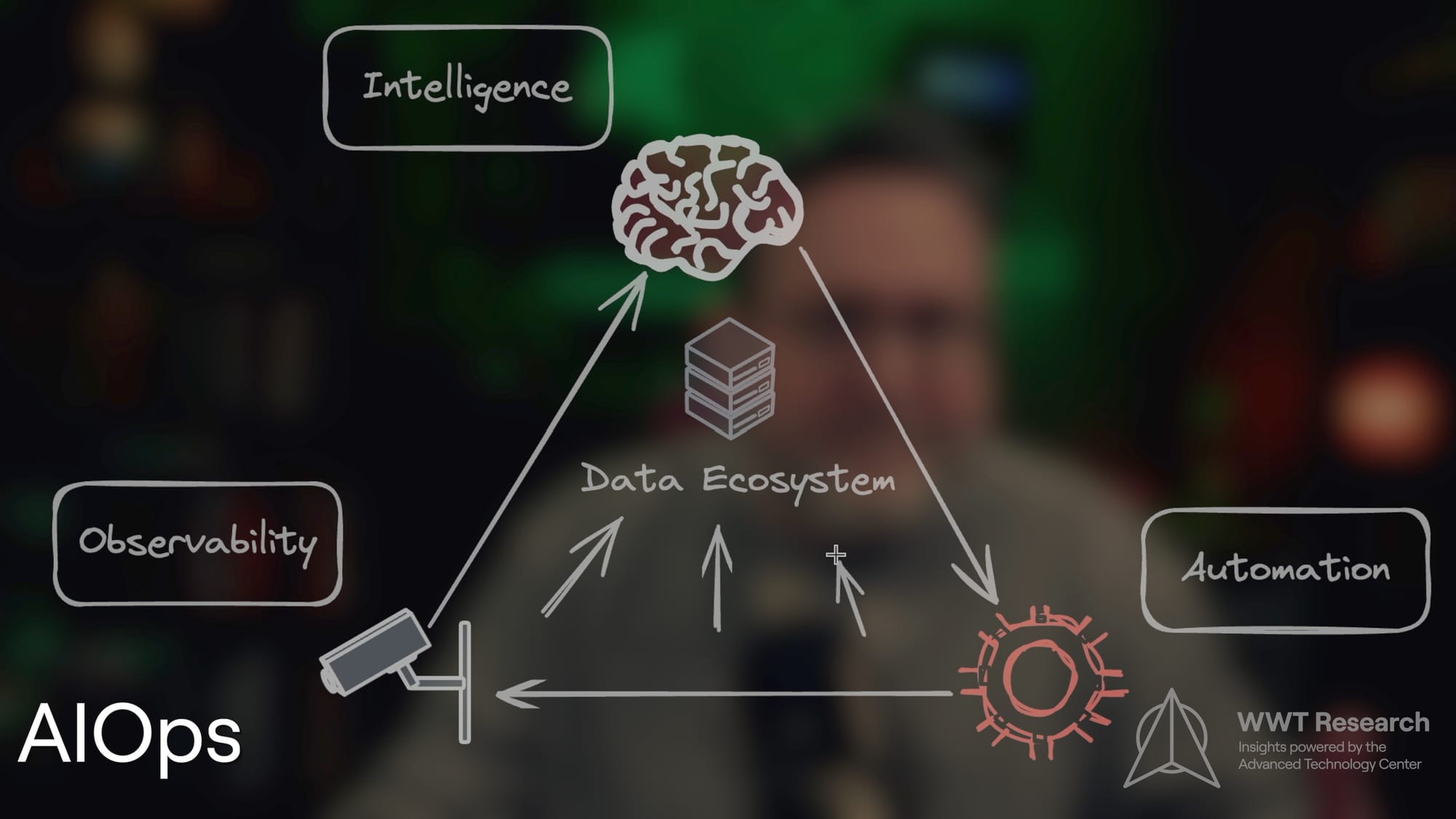Modularity and AIOps
AIOps, often like a puzzle with mismatched pieces, needs a strategic, modular approach. WWT experts demonstrate how this can streamline IT operations.

The challenges that AIOps (Artificial Intelligence for IT Operations) purports to solve are far from novel, yet they continue to be persistent thorns in our side. In my journey through the IT landscape, I've observed that the hesitant adoption of these technologies often falls into distinct categories.
Firstly, we have the 'Firefighters' – those operations teams perpetually in reaction mode. Strategic planning only seems to take precedence in the wake of a significant incident. Then, there are the 'Short-Timers.' These teams have dabbled in related technologies, usually as a knee-jerk response to some crisis. Sadly, these investments often end up in isolated deployment, abandoned halfway for other projects, without ever being integrated into the ongoing workflow.
Here's the twist: the problem isn't with the tools themselves. Successful AIOps deployments often utilize the same tools available to anyone. It's not about what is in your arsenal, but how you use it. The missing ingredient is strategy. Without it, we see too many projects occurring in a vacuum, leading to organizational struggles.
This lack of strategic integration in AIOps is akin to assembling a puzzle with pieces from different sets. Each piece, while well-crafted on its own, fails to fit into the larger picture.
Recognizing this, many organizations still overlook the crucial step of integrating these technologies into their workflows. Achieving success in AIOps requires what I like to call 'corporate introspection' – a deep dive into understanding your organization's unique needs and tailoring your approach accordingly. This foundational step might seem daunting, but it's negligible compared to the substantial benefits that await persistent and strategic efforts.
Reflecting on the investments scattered across various departments, one realizes they seldom justify their costs. This situation brings to mind an age-old IT debate about balancing short-term fixes against the complexity of multi-domain issues. Often, we are pushed to provide quick solutions, leading to half-baked implementations and vague promises of integration down the line.
WWT Research advocates for a modular approach to AIOps, as discussed in their latest study, "A Modular Approach to AIOps." This strategy involves breaking down the overwhelming task into manageable segments. Each module, while part of a customized solution, offers incremental benefits, ensuring that efforts are not wasted as the system evolves.
Adopting AIOps is becoming increasingly crucial for businesses, and a modular implementation can expedite this process significantly, ensuring more effective outcomes.
In our upcoming session, "Unlocking the Potential of AIOps With a Modular Approach," we will delve deeper into this topic with WWT experts. Snigda Bhardwaj, a data science manager, and Anshul Chaturvedi, a principal in the management consulting practice specializing in data and AI, will share their insights and guidance on initiating this journey.
Join us to explore how a modular approach to AIOps can create a synergy between costs and benefits, fostering a positive momentum in your IT operations.
[Watch the Replay: Unlocking the Potential of AIOps With a Modular Approach]
Stay tuned for an enlightening discussion that could reshape how you view and implement AIOps in your organization.


